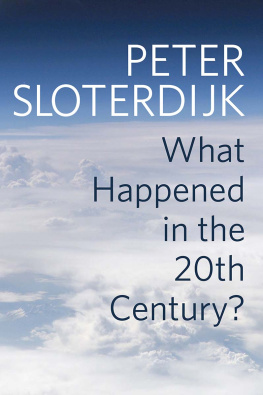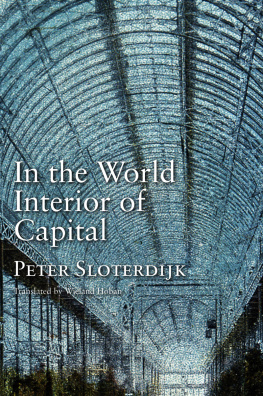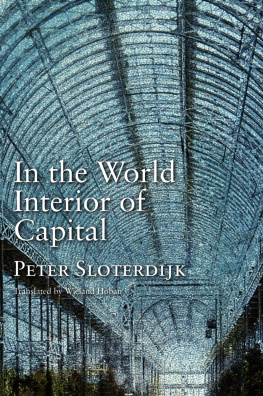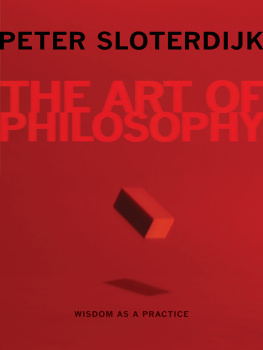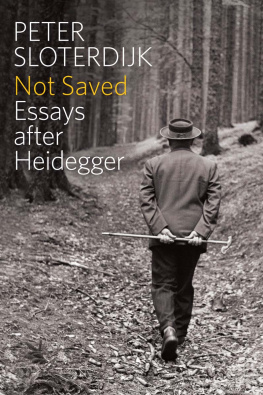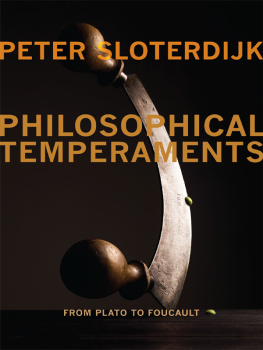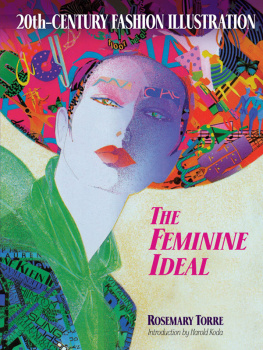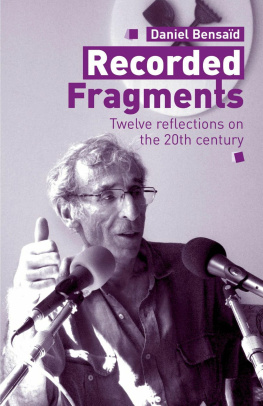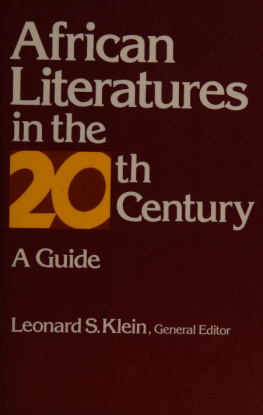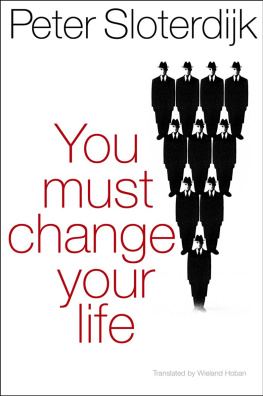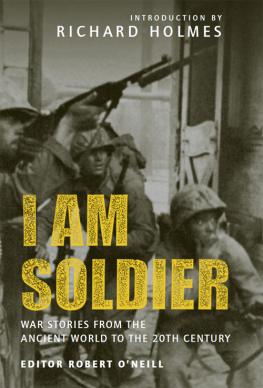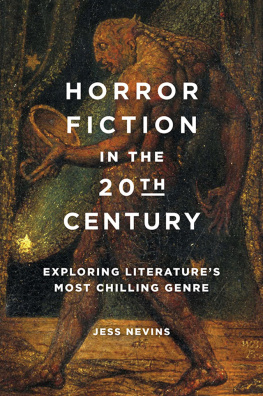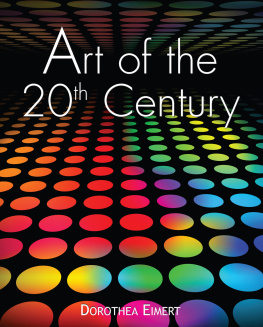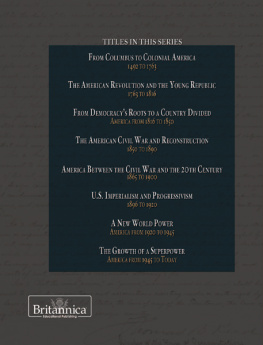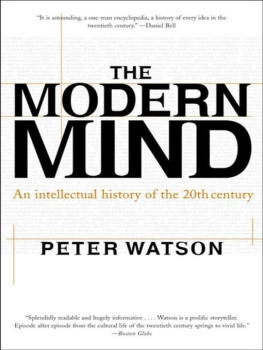Contents
Guide
Pages

What Happened in the 20th Century?
Peter Sloterdijk
Translated by Christopher Turner
polity
First published in German as Was geschah im 20. Jahrhundert? Suhrkamp Verlag, Berlin, 2016
This English edition Polity Press, 2018
The translation of this work was supported by a grant from the Goethe Institut

Polity Press
65 Bridge Street
Cambridge CB2 1UR, UK
Polity Press
101 Station Landing
Suite 300
Medford, MA 02155, USA
All rights reserved. Except for the quotation of short passages for the purpose of criticism and review, no part of this publication may be reproduced, stored in a retrieval system or transmitted, in any form or by any means, electronic, mechanical, photocopying, recording or otherwise, without the prior permission of the publisher.
ISBN-13: 978-1-5095-1841-8
A catalogue record for this book is available from the British Library.
The publisher has used its best endeavours to ensure that the URLs for external websites referred to in this book are correct and active at the time of going to press. However, the publisher has no responsibility for the websites and can make no guarantee that a site will remain live or that the content is or will remain appropriate.
Every effort has been made to trace all copyright holders, but if any have been inadvertently overlooked the publisher will be pleased to include any necessary credits in any subsequent reprint or edition.
For further information on Polity, visit our website: politybooks.com
THE ANTHROPOCENE A STAGE IN THE PROCESS ON THE MARGINS OF THE EARTHS HISTORY?
1.1 Weightless Humanity
In the year 2000, when the Dutch atmospheric chemist Paul J. Crutzen suggested that we use the term Anthropocene drawing on an analogous concept of the Italian geologist Stoppani (182491) from 1873 to designate the present age from the perspective of natural history, it was assumed that this term would remain part of a hermetic discourse that is spoken behind the closed doors of institutes for gas analysis or geophysics.
Yet, through a strange series of accidents, the synthetic semantic virus must have succeeded in getting past the quite secure laboratory doors and spreading to the lifeworld in general. We thus get the impression that it easily reproduces itself in the context of the sophisticated feuilleton, the museum, macrosociology, new religious movements, and literature warning of ecological collapse.
The proliferation of this concept can mainly be traced back to the fact that, under the guise of scientific neutrality, it conveys a message of almost unparalleled moral-political urgency, a message that can be explicitly formulated as follows: human beings have become responsible for the habitation and management of the Earth as a whole, since their presence upon it is no longer more or less seamlessly integrated with it.
The concept Anthropocene, ostensibly a geological term, implies a gesture that in a juridical context would be characterized as the designation of a responsible agency. With the attribution of responsibility, an address is provided to which possible accusations can be sent. This is precisely what we have to do today when we attribute the capacity for geo-historical offenses to the human being without further specification.
When we speak of an Anthropocene, we only seem to be sitting in a geoscientific seminar. In reality, we are taking part in a court case in a preliminary hearing before the main trial, to be more precise in which, as a first step, the accuseds culpability is supposed to be settled.
This preliminary hearing is concerned with the question of whether it makes any sense at all to try the offender in question, given that the latter is not of age. This hearing would include the author Stanislaw Lem, among others, who seems to exonerate the human being by awarding him, in a tellurian context, the status of a quantit ngligeable, or as Lem himself puts it:
were all humanity taken and crowded together in one place, it would occupy three hundred billion liters, or a little less than a third of a cubic kilometer. It sounds like a lot. Yet the worlds oceans hold 1,285 million cubic kilometers of water, so if all humanity those five billion bodies were cast into the ocean, the water level would rise less than a hundredth of a millimeter. A single splash, and Earth would be forever unpopulated.
In the case of quantitative relations such as these, it does not matter if we introduce present-day humanity, numbering seven billion, into the picture instead of a humanity totaling five billion (as assumed by Lem) or the eight or nine billion that will be reached after the year 2050. In terms of biomass, a randomly and rapidly ever-increasing humanity would remain infinitesimally small, if we could sink humanity toto genere into the ocean. But then, what is the point of putting on trial a species that pales in comparison to the material dimensions of the Gaia-system, the hydrosphere? Lems position, incidentally, is very close to certain classic disparagements of the human being such as Schopenhauers contemptuous remark that the human race is like an ephemeral mold on the surface of the planet Earth.
The prosecution will reply to these objections that the whole of humanity at its current stage of evolution simply cannot be defined merely in terms of biomass. If humanity is supposed to be put on trial, this is mainly because it epitomizes a meta-biological agency that is able to exert quite a bit more influence on the environment, by virtue of its capacity for action, than we would assume on the basis of its relative physical weightlessness.
Obviously, in this context, we immediately think of the technological revolutions of the modern age and their side effects, which not without reason are chalked up to collective humanity. In truth, collective humanity initially means European civilization and its technocratic elite. It was the latter that introduced a new agency into the game of global powers from the seventeenth and eighteenth centuries onward with the use of coal, and later petroleum, in machines. In addition, the discovery and demonstration of the nature of electricity shortly before the year 1800, and the technical mastery of it in the nineteenth century, gave rise to a new universal in the discourse on energy. Without this new universal, the metabolic interaction of human beings with nature to recall the Marxist definition of labor would be inconceivable. The collective that is characterized these days by expressions such as humanity mainly consists of agents who within less than a century have acquired technologies developed in Europe. When Crutzen speaks of an Anthropocene, this is a gesture of Dutch courtesy or avoidance of conflict. In fact, talk of a Eurocene or a technocene initiated by Europeans would be more fitting.
That human actors have an impact on nature in their turn is not really a new observation. Already in antiquity, deforestations were noted in Greece and Italy that were ascribed to the demand for timber in the shipbuilding industry. The emergence of cultivated landscapes, too, is inconceivable without taking the influence of agriculture, viticulture, and animal husbandry into consideration. The latter, in particular, continues to be an unsettling item on the bill that the ecosystem Earth will present to human beings. Only in more recent times has the connection between human pastoral power and political expansionism been emphasized. In macrohistorical terms, there is quite clearly a relatively recent (that is, spanning about 3,000 years) causal nexus between raising cattle and imperial politics: not a few historical empires such as those of the Romans, the British, the Habsburgs, and the Americans were ultimately based on the cultivation of herds of livestock that provided their herdsmen with a significant surplus of labor power, mobility, protein, and leather, not to mention the link between being assured of a certain caloric intake on a daily basis and political expansionism. In more recent times, we have also become aware that herds of cattle have a considerable impact on the environment, because of their metabolic functions.

